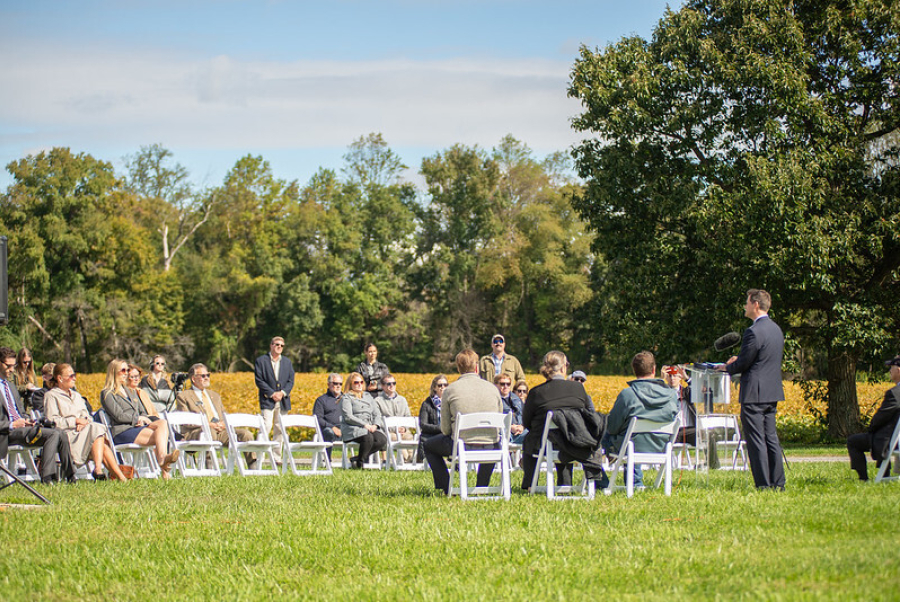10 Chesapeake Bay watershed conservation projects to receive over $9.6 million
NFWF announces annual Innovative Nutrient and Sediment Reduction Grant Program recipients

On a mid-October morning in Maryland’s eastern shore, the National Fish & Wildlife Foundation (NFWF) announced the recipients of an annual grant program that is core to the mission of the Chesapeake Bay Program. The 10 conservation projects include stormwater solutions at a visionary Baltimore greenspace, restoration to parts of the Upper Mattaponi Indian Tribe’s ancestral lands, a cost-share program to incentivize sustainable practices on chicken farms and more.
Projects are supported by the Innovative Nutrient and Sediment Reduction Grant (INSR) Program, which uses federal funding provided by the Environmental Protection Agency to meet goals related to clean water. NFWF administers the grants through their Chesapeake Stewardship Fund.
Through the INSR program, 10 projects were awarded $9.6 million in federal funding. The 10 projects will also leverage more than $9.4 million in matching contributions—which is when grant recipients provide additional funding from different sources—to generate a total conservation impact of just over $19 million.
“The grants announced today build on decades of success through NFWF’s Chesapeake Bay Stewardship Fund partnership with the U.S. Environmental Protection Agency in advancing on-the-ground, voluntary and community-based approaches to accelerate water quality improvements for the Bay and its tributary rivers and streams,” said Jeff Trandahl, executive director and CEO of NFWF
Though the end goal of the INSR program is to support efforts that improve the health of local waterways, this year’s projects demonstrate a wide range of related impacts, from flood management to habitat restoration.
Recipients such as Backyard Basecamp, a nonprofit reconnecting Black, Indigenous and People of Color (BIPOC) to land and nature in Baltimore City, will use the funding to tackle stormwater runoff, flooding and enhancements to a community garden that is actively improving food security and mental health in a predominately BIPOC neighborhood. In another project, Penn State University will initiate green infrastructure projects in places of worship while encouraging congregation members with farms to adopt conservation practices on their land.
Collectively, the award winners will create improved health and habitat across the Bay watershed.
“Every tree that is planted, every riparian buffer, every stormwater retrofit, every wetland restored, every community-led green infrastructure project—all of that gets us closer to a restored Chesapeake Bay,” said Wicomico County Councilmember Josh Hastings.
A complete list of the 2023 Chesapeake Bay Innovative Nutrient and Sediment Reduction grants recipients is available here.

Comments
There are no comments.
Thank you!
Your comment has been received. Before it can be published, the comment will be reviewed by our team to ensure it adheres with our rules of engagement.
Back to recent stories